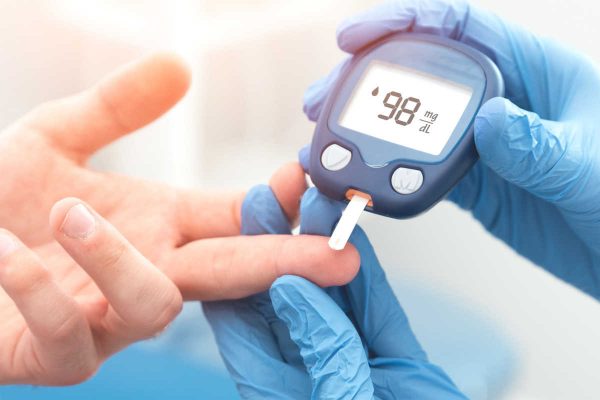Sleep Apnea and Diabetes: Understanding the Link
Sleep apnea and diabetes are two common health conditions that often occur together. According to the Journal of Diabetes Investigation, people with obstructive sleep apnea (OSA) are more likely to develop type 2 diabetes, and over half of the population with type 2 diabetes suffer from obstructive sleep apnea. The link between these conditions is complex, but understanding it can help individuals manage both conditions more effectively. Dr. Sheila Birth, our Fort Worth sleep dentist, explains the link between sleep apnea and diabetes, while also providing tips on how to manage both conditions.


What Are Sleep Apnea & Diabetes?
Sleep apnea is a sleep disorder where breathing is interrupted repeatedly during sleep. It can lead to symptoms such as loud snoring, excessive daytime sleepiness, and an increased risk of other health conditions like high blood pressure, heart disease, and stroke. Diabetes is a chronic condition that affects how the body processes blood sugar. Diabetes can also lead to high blood pressure, heart disease, stroke, and other symptoms closely related to sleep apnea.
How Sleep Apnea & Diabetes Are Linked
Managing both sleep apnea and diabetes is crucial for overall health and well-being. Fortunately, several strategies can help individuals manage both conditions effectively.
- Lifestyle Changes: Making lifestyle changes such as losing weight, eating a healthy diet, and exercising regularly can help improve both sleep apnea and diabetes. These changes can help improve insulin sensitivity, reduce inflammation, and promote healthy sleep patterns.
- Continuous Positive Airway Pressure (CPAP): CPAP is a common treatment for sleep apnea that involves wearing a mask over the nose or mouth while sleeping. The mask is connected to a machine that delivers a constant stream of air to keep the airway open. CPAP has been shown to improve blood sugar control in people with diabetes and sleep apnea.
- Oral Appliance Therapy: Oral appliances are custom-made devices that fit in the mouth and help keep the airway open during sleep. They can be an effective alternative to CPAP for some people with mild to moderate sleep apnea.
- Diabetes Management: Managing diabetes through medications, blood sugar monitoring, and lifestyle changes can help reduce the risk of developing sleep apnea and improve sleep quality for those who already have sleep apnea.
- Regular Screenings: Regular screenings are crucial for the early detection and management of sleep apnea and diabetes. Early detection is key in preventing serious health complications, especially for those with risk factors such as obesity, high blood pressure, or a family history of either condition.


Managing Sleep Apnea and Diabetes
Managing both sleep apnea and diabetes is crucial for overall health and well-being. Fortunately, several strategies can help individuals manage both conditions effectively.
- Lifestyle Changes: Making lifestyle changes such as losing weight, eating a healthy diet, and exercising regularly can help improve both sleep apnea and diabetes. These changes can help improve insulin sensitivity, reduce inflammation, and promote healthy sleep patterns.
- Continuous Positive Airway Pressure (CPAP): CPAP is a common treatment for sleep apnea that involves wearing a mask over the nose or mouth while sleeping. The mask is connected to a machine that delivers a constant stream of air to keep the airway open. CPAP has been shown to improve blood sugar control in people with diabetes and sleep apnea.
- Oral Appliance Therapy: Oral appliances are custom-made devices that fit in the mouth and help keep the airway open during sleep. They can be an effective alternative to CPAP for some people with mild to moderate sleep apnea.
- Diabetes Management: Managing diabetes through medications, blood sugar monitoring, and lifestyle changes can help reduce the risk of developing sleep apnea and improve sleep quality for those who already have sleep apnea.
- Regular Screenings: Regular screenings are crucial for the early detection and management of sleep apnea and diabetes. Early detection is key in preventing serious health complications, especially for those with risk factors such as obesity, high blood pressure, or a family history of either condition.
Frequently Asked Questions
Can treating sleep apnea improve diabetes control?
What are the symptoms of sleep apnea in people with diabetes?
Can sleep apnea cause gestational diabetes in pregnant women?
How does sleep apnea affect glucose metabolism?
Call Today & Take Control of Your Sleep Apnea and Diabetes
If you’re in Fort Worth or surrounding areas such as River Oaks, Arlington, & Westover Hills, TX, understanding the link between sleep apnea and diabetes is crucial. Dr. Sheila Birth, our Fort Worth sleep dentist, provides information and solutions for managing both conditions. Learn about the latest treatment options that can help improve your overall health and well-being.
Call our Fort Worth office by dialing 817-502-9103 or schedule an appointment by filling out the form below to learn more about managing sleep apnea and diabetes. Don’t miss out on this opportunity to take control of your health!
